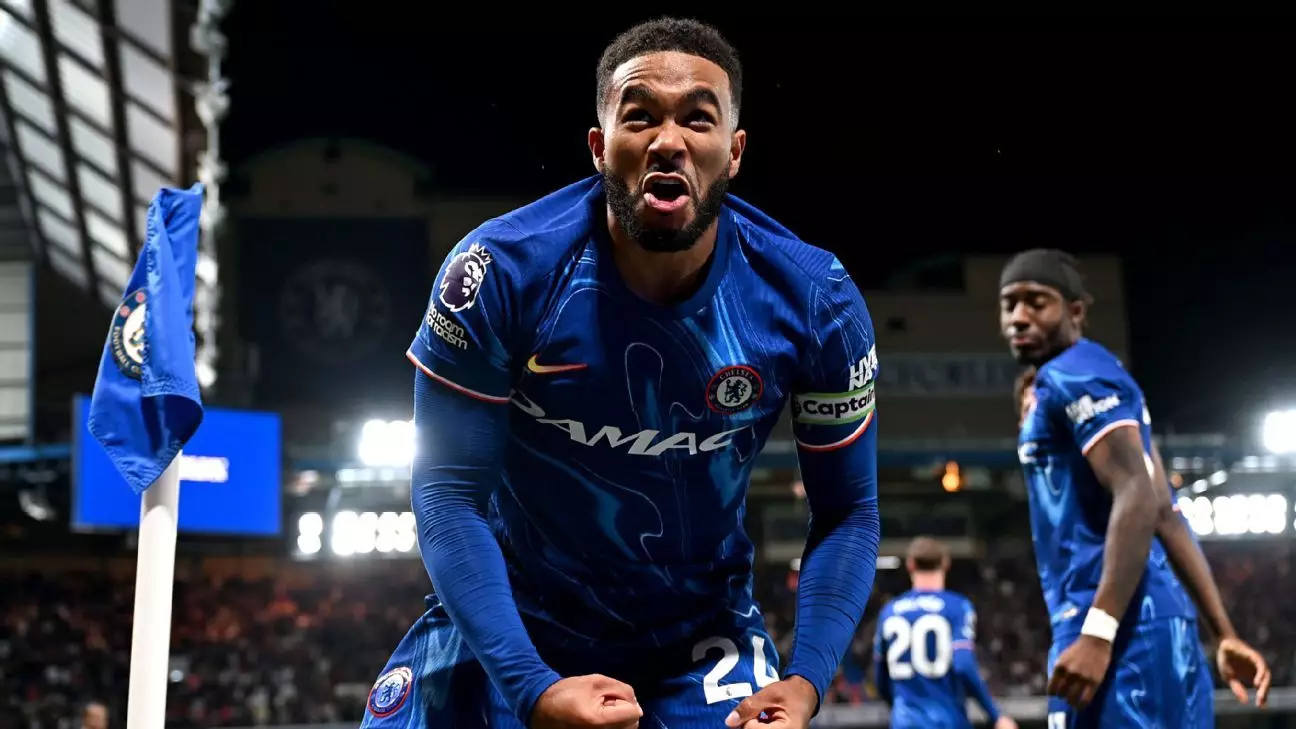Chelsea Football Club’s recent 1-0 victory over Manchester United at Stamford Bridge has lent a semblance of hope for Champions League qualification, yet the match laid bare significant cracks in their gameplay. Surviving based on the singular brilliance of Reece James, who provided an assist for Marc Cucurella’s header, and the failure of their opponent to capitalize on a lackluster performance raises essential questions about Chelsea’s ability to execute a cohesive and dynamic playing strategy moving forward. The team finds itself at a critical juncture where merely grinding out results is no longer sufficient.
This match underscored the glaring absence of Nicolas Jackson, whose red card at Newcastle left the squad scrambling for solutions. Jackson’s pressing capabilities and goal-scoring potential had become critical assets, and his absence was keenly felt against a fragile Manchester United side. Chelsea’s scenario brings into focus the struggle of teams grappling with the impact of a single player’s absence and the pressing need for squad depth.
Injuries and Youth: The Manager’s Dilemma
Enzo Maresca’s tactical decisions in the wake of injuries to key players like Christopher Nkunku and the suspension of Jackson seemed fraught with risk. Starting 19-year-old Tyrique George in such a high-stakes match can be seen both as a display of confidence in youth and as a gamble that did not yield the desired results. George’s performance, while commendable in terms of effort, indicated the challenges young players face when thrust into the limelight without the necessary support or experience around them.
Despite his struggles—evidenced by merely six touches in the first half—Maresca lauded George’s bravery and potential. However, one must question whether such praise, while well-intentioned, neglects the reality of immediate performance and results that the club desperately needs. It raises broader concerns about whether the academy system is adequately preparing these young talents for the rigors of Premier League competition.
The Need for Experience and Leadership
Chelsea’s path forward relies heavily on their ability to blend experience with youthful exuberance. The glaring absence of established players in critical roles has left the team searching for leadership on the pitch. This void was particularly notable during the match against United, where the team’s collective attacking threat was minimal. The pressure is mounting on Maresca to not only find immediate tactical solutions but to also foster an environment where young players can contribute effectively without feeling overwhelmed.
The post-match comments from key players like Reece James reinforce the sentiment of urgency and ambition within the club. The push for Champions League football is not merely a talking point but a necessity for attracting talent and maintaining competitive edge. James’s remarks about belonging in competitions like the Champions League encapsulate a broader ambition that must be matched by on-field performances; aspirations must translate into results.
The Evolving Landscape of the Premier League
Chelsea’s struggles are not unique; Manchester United finds itself in a similar predicament, grappling with their own underwhelming season. Both clubs face mounting pressure to revitalize their squads and improve performances, especially as they eye promising talents like Liam Delap from Ipswich Town. The potential tug-of-war for such players serves as an indicator of the shifting dynamics in the Premier League, where clubs must leverage European competition status to attract top prospects.
As teams recalibrate their rosters for the impending transfer window, the message is clear: consistency and quality are paramount. Each club must introspectively assess their strategies, systems, and personnel. For Chelsea, this means navigating the fine line between fostering youthful talent and securing seasoned professionals who can provide immediate impact.
Determination and Strategy: A Long Road Ahead
Looking ahead, Chelsea will need to reassess their tactical approach as they prepare for upcoming challenges, including their own European showpiece against Real Betis. Maresca’s recognition of the need for alternative solutions in the absence of Jackson may indicate a shift towards exploring versatile strategies that maximize the available talent.
The importance of resilience carries through Chelsea’s current narrative. While this season has been arduous, it also presents an invaluable opportunity for reflection, growth, and evolution. For the players, the management, and the fanbase alike, embracing this adversity can ultimately lay the groundwork for a team capable of reclaiming its status in English and European football. Revitalization won’t come overnight, but every match counts as Chelsea charts its course back to prominence.

